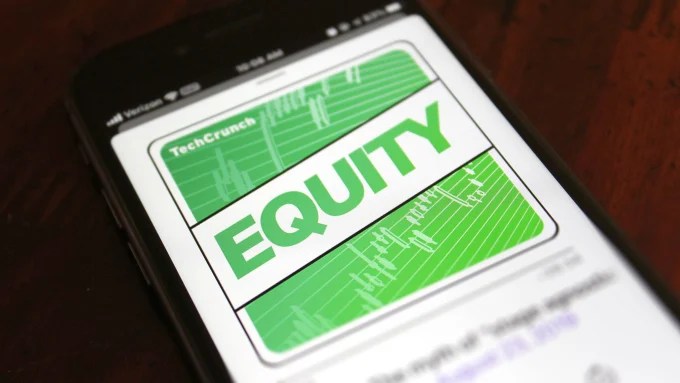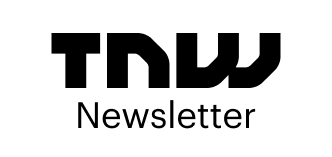
This is a transcript of the latest episode of Equity, TechCrunch’s venture capital–focused podcast. New episodes of Equity air every Monday, Wednesday and Friday.
Listen above or read below to catch up on our Wednesday show, in which we talk through the week’s leading startup and venture capital news.
Transcript
0:10
Hello, and welcome back to Equity, the TechCrunch podcast where we unpack the numbers and the nuance behind the headlines. Today is February 14, 2024. Happy Valentine’s Day, I hope you’re gonna eat some chocolate and chill on the couch because you deserve it.
This is our Wednesday show, where we dig into the critical startup and venture capital stories from the week thus far. On the pod today, we have an absolute killer list of stuff. I can’t wait to talk about it.
We’re going to start with Bret Taylor’s new startup Sierra, and why FlowFi wants to combine people and tech. Then we have venture capital rounds from Fold and Antithesis. And we’ll close our startup coverage by asking why everyone wants me to eat more mushrooms. In the venture corner, we have news from Homebrew, Foundry and the latest from Europe. Let’s go!
1:00
To kick off our startup coverage, today I want to talk about someone who may be best known for his work in Big Tech. That’s Bret Taylor. He’s the former Google Maps dude, he founded FriendFeed and then became Facebook’s CTO. Then he founded Quip and then became Salesforce’s co-CEO. And he’s a former board member over at Twitter and currently sits on the board of OpenAI. And he’s building a new company called Sierra.
So what is Sierra up to? Well, it’s building conversational AI agents, essentially bits of artificial intelligence that do stuff for end users, like ask questions or update their account. The AI agent space is busy, but Sierra has already raised $110 million and put a product out in the market. So it seems that with lots of capital, early customers, and probably even some early revenue, it is making a play that’s well backed to dominate a growing software niche.
But it’s doing the work in more of a hands-on way than I expected. It’s creating software tools for its customers instead of just offering them a big bag of things to put together on their own.
The joke here is that if you want to raise money today, build an AI startup. But if you really want to raise money today, well, build an AI startup also sitting on the board of OpenAI. Fortune reports that Sierra is using both closed — aka OpenAI — and open source AI models that it chains together to avoid hallucinations and help its AI agents actually execute tasks for its customers. Chained LLMs could become a trend.
2:36
Moving along [to] FlowFi. I think this is an absolutely fascinating startup. It just raised $9 million from Blumberg Capital. But the way that it’s going after its market, startup financial management, really has me sitting up.
So today there’s a big push to use AI to do as much of what humans can do, as often as possible and as quickly as possible. The logic here is pretty simple. Computer agents are far cheaper than human laborers. Swapping out the latter for the former just makes sense from a business perspective. However, FlowFi is building a software suite for startup finances that it pairs with a marketplace of real humans who help its customers with their books. So it’s building software plus humans instead of software with more AI.
And frankly, in this case, I get it. You don’t want your CFO to be a bot. You want someone who is grizzled, experienced and can give you that well-known CFO stare when you make a silly mistake, or spend too much money on your business trip dinners. So the company offers accounting help, a CFO-like service and tax prep assistance, just with software and humans at the helm. Very cool. But let’s see how it scales.
3:47
And there was so, so, so much more this week. I’ve had to condense a couple of things, but I want to get to more companies. So let’s start with Bold. It just raised $50 million, and it’s working on payments in Latin America. So this is a big fintech round in a region that was once absolutely bonkers for fintech, and given the venture pullback we’ve seen in Latin America, and in fintech more generally, it’s cool to see Bold raise money for this project, located where it is. Bold is a welcome ray of light than for a lot of other Latin American fintechs that are hoping to raise more capital themselves. And if you recall, on last Friday’s show, we talked a lot about how Latin American startups are more efficient by several key metrics than those in other regions. So perhaps VCs here are seeing that and putting their checkbook to work where it might have the most impact.
4:35
Next up is a company called Antithesis. It just raised $47 million for its automated software testing service. I picked this one because I think it’s pretty cool. The reason is, everyone agrees that software is the future of the world. But actually making written code that is safe and secure and stable is no easy task. You can kind of compare this to writing and editing — you need both to have a good final product. So Antithesis is building a bunch of tools to help make code run very good, if I can put it that way. Clearly it does have a lot of competition, especially in the world of startups. But I don’t think you snag this much capital in today’s market if your numbers aren’t top notch. Antithesis, one to watch.
5:20
And then to close out our startup coverage, why does everyone want me to eat mushrooms? It’s actually getting kind of weird. This time, it’s a startup called Spacegoods — all one word. It’s a London-based wellness brand that wants to use mushrooms and nootropics to create a line of powder blends. TechCrunch says that it claims its product will enhance my energy, relaxation and mood. To which I can just say sure. Other startups are using mushrooms to make fake leather, protein-focused foods and energy drinks. Apparently mushrooms can do everything. And that does mean that the folks who wrote “The Expanse” were right. I guess we should all be on the lookout for bottles of mushroom whiskey, which must be on the way.
6:04
Moving from startups to venture capital, our first VC story of the morning is that Homebrew is targeting $50 million for a new fund . . . according to an SEC filing. And this filing actually comes as a bit of a surprise because Homebrew said nearly two years ago that it was pursuing a more stage-agnostic, evergreen model that would be funded solely by its partners Satya Patel and Hunter Walk. So what to make of the news? I have a couple of ideas. It could be an opportunity fund perhaps, or maybe a very tailored vehicle for larger follow-on investments in prior deals.
If Homebrew can self-fund, its prior funds have done very well. So people might want to co-invest with it a bit, even if its main funds will now be sourced internally. Anyways, can you imagine the LP meetings of a fund that is entirely backed by its own general partners? It would go like “Hello and good morning. How did we do this quarter that great? Okay, meeting adjourned.”
7:13
But if Homebrew is reloading, Foundry Group is walking away. Foundry is an 18-year-old venture capital firm with nearly $3.5 billion in assets under management. And it has quietly decided to shut down and not raise any more funds. This move took TechCrunch by surprise because the firm announced a $500 million fund last year.
Over the years, Foundry has invested in more than 200 companies and 50 venture capital firms. And that’s according to its co-founder and partner Seth Levine. In terms of names that you know, Foundry has backed companies like Fitbit and Zynga. But in a post, Levine wrote that, and I quote, “while VC firms rarely make decisions like this is precisely what we plan to do when we started foundry back in 2006. From our founding, we intentionally decided not to build a legacy or generational firm.”
In a way this feels kind of refreshing. Do something for a while, make a lot of money, and then move on. It feels oddly clean, especially because of what we have seen at other venture capital firms. A major generational shift or handover can get messy. But don’t worry, Foundry still has money to invest from its last fund. It’s just not going to raise another.
8:30
And to close us out, our own Anna Heim reports that Germany-based Earlybird Health has put together the final close of its second fund, which is going to be worth 173 million euro or about $185 million. This is actually more than twice the size of Earlybird’s first healthcare-focused fund, which is very creatively named Health One and was worth about €85 million at its own final closing. So while both funds are similar in both thesis and stage, the larger, newer fund will enable Earlybird to write larger checks. Who doesn’t love a bit more ownership? And because Earlybird intends to invest mostly in Europe, including the U.K., its new fund could be good news for health tech startups in the region, many of which are running low on cash after the very public fall of telehealth company Babylon.
9:23
And that is our show for this delightful Wednesday morning. Hugs to you. We hope you’re doing well.
We’ll have more for you on Friday, but in the meantime, we are “equitypod” over on X and Threads and we are TechCrunchPods over on TikTok.
In the meantime, I firmly recommend you take a look at both of our sister shows. That’s Chain Reaction on the crypto beat and Found talking to founders about how they built what they did. All right. This is Alex, I’ll talk to you soon. Bye.
Equity is hosted by myself, Alex Wilhelm, and TechCrunch Senior Reporter Mary Ann Azevedo. We are produced by Theresa Loconsolo with editing by Kell. Bryce Durbin is our Illustrator and a big thank-you to the audience development team and Henry Pickavet, who manages TechCrunch audio products. Thank you so much for listening and we’ll talk to you next time.





